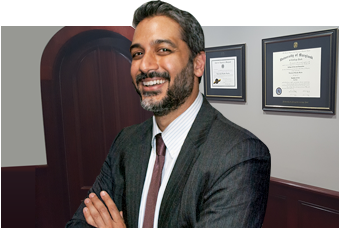A Criminal Trial: Should You Testify To Defend Yourself?

The question of whether a defendant should take the stand in a criminal case is a tricky one. On the one hand, testifying gives the defendant an opportunity to interact with the jury to a certain extent—to make a connection. On the other hand, it is entirely possible that a skilled prosecutor makes a defendant look guilty in front of the very peers who hold his future in their hands. What is the right decision for you?
Benefits of Taking the Stand
First of all, it is important to note that the constitution gives every defendant the right to choose to take the stand. Strategically, it is a critical decision. The prosecution has the burden of proof in these cases. Nonetheless, the jury may be interested in hearing the story right from the horse’s mouth, so to speak. What does the defendant have to say on his own behalf? How credible a case can he make? If a defendant is able to remain calm, articulate, and sincere, it’s possible his demeanor will have weight with the jury. This counterbalance to whatever the state presents could be enough to render a favorable verdict.
Why it Might be Best to Stay Mum
On the other hand, the constitution gives defendants the right to decline to testify. Why should they? Since the burden of proof lies with the state, a defendant may simply wait out the trial and watch a prosecutor flame out. After all, testifying can be a grueling experience, especially when the prosecutor gets the opportunity to grill the defendant. How many people could maintain their grace and poise when the opposition is taking fire? Additionally, if the defendant has any prior convictions, the jury may get to hear about them if the defendant takes the stand. Could knowledge of previous convictions color the way a jury interprets the facts of this case? It seems likely that it could.
Case in Point
The case of Kyle Rittenhouse who was on trial for wounding one and killing two men with an assault rifle during the Black Lives Matter protests last summer in Kenosha, Wisconsin. Rittenhouse chose to take the stand to claim self-defense. While questioning by his own attorney went according to plan, the prosecutor became quite aggressive in an attempt to present a different narrative than the one the defense laid out. Rittenhouse was a dangerous hot-head who showed up with a military-style weapon with a taste for excitement. Despite anticipating such a prosecution tactic, Rittenhouse believed he could remain genuine and coherent throughout cross examination and determined that having the opportunity to tell his own story outweighed the risks of remaining silent.
Rittenhouse was ultimately acquitted of the charges.
What Should You Do?
If you are facing a criminal trial, the decision whether or not to take the stand is monumental. At The Law Office of Hammad S. Matin, P.A., our knowledgeable and experienced La Plata & Waldorf criminal attorneys can help you to weigh the issues and make the best decision for your situation. Contact our office for a confidential consultation today.
Resource:
nytimes.com/2021/11/02/us/kyle-rittenhouse-trial-opening.html

